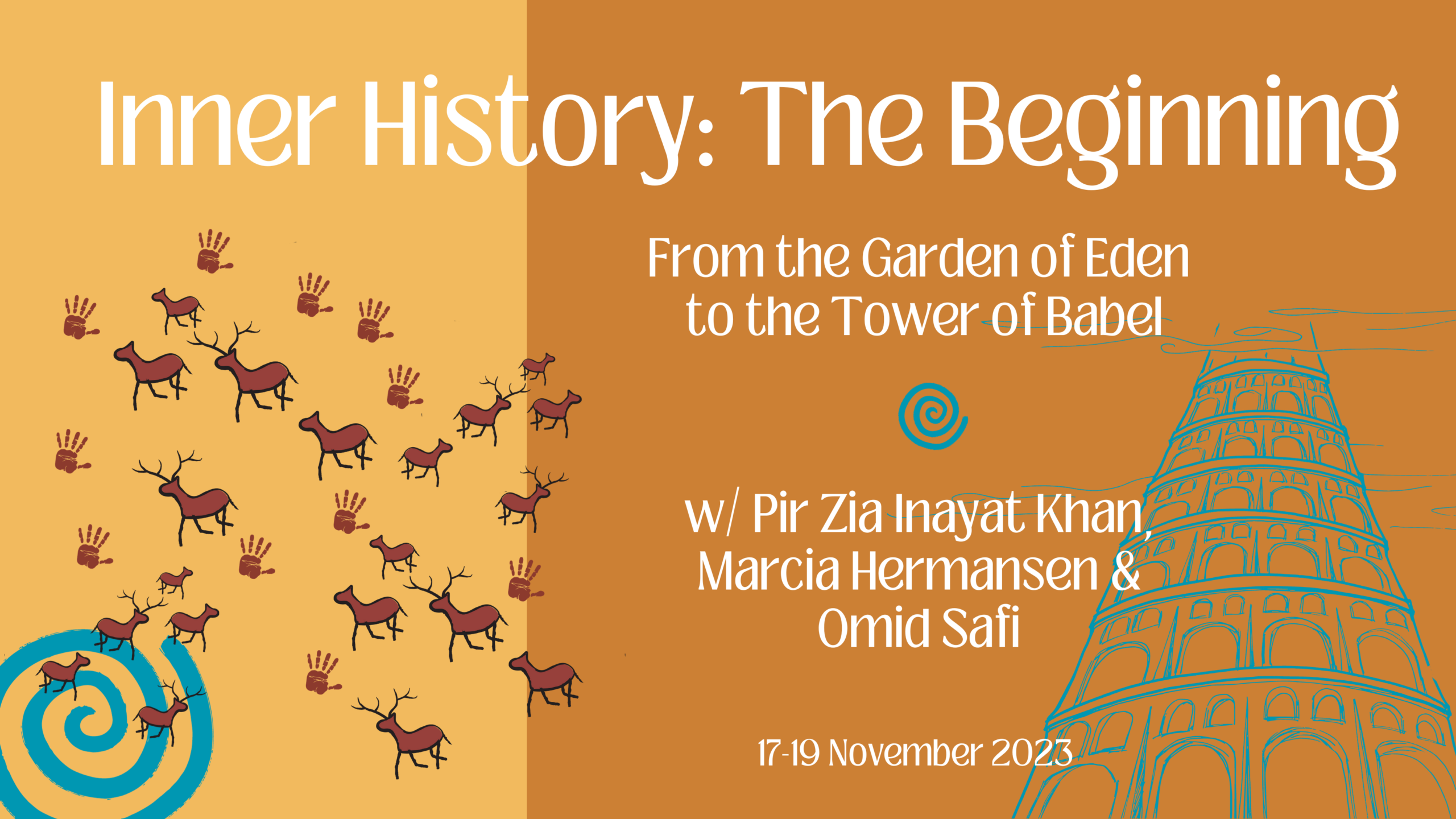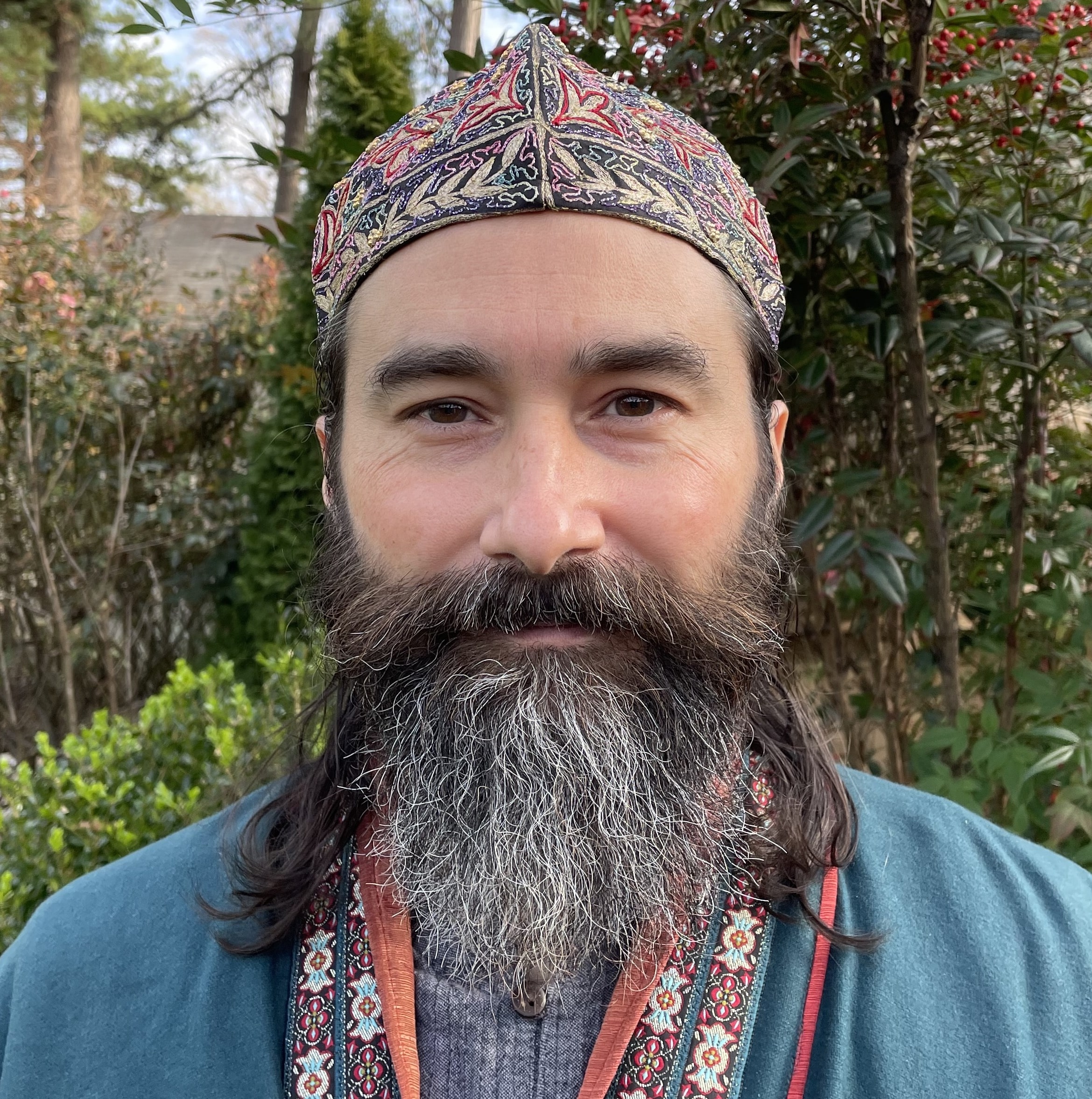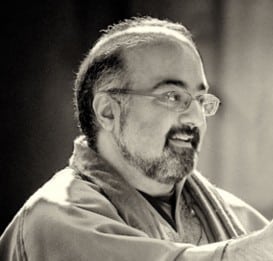
About Course
The inner life is a birth of the soul. — Hazrat Inayat Khan
If history is the sentence of our imprisonment, then history, recoded, can become the password of our release. — William Irwin Thompson
In his teachings in The Inner Life, Hazrat Inayat Khan describes the process that leads from spiritual exile to homecoming. The inner life is attained when the body, mind, and soul become consciously conjoined. To realize this entelechy, or perfection of nature, the mystic must make common cause with the animal, vegetal, mineral, jinnic, angelic, and universal dimensions of the Earth, step by step.
The inner life has frequently been viewed as a personal pursuit. In reality, however, no one exists in isolation. History is a caravan. To study the inner story of the Earth is to discover how, down the ages, angels, prophets, and sages have traced the contours of the entelechy by teaching humanity the sacred knowledge of animals, plants, stones, jinns, angels, and the Logos-Sophia. In each age, a particular wisdom was revealed.
The inner arc of sacred history and the personal quest for the wholeness mirror each other. If we can discern the code, the former has the potential to illuminate and energize the latter. This is the meaning of the Sufi injunction to find “the prophets of your being.”
Viewed panoramically, the ages of planetary time disclose the unfurling of a mystery: the animal consciousness of the Archaic, the vegetal consciousness of the Agricultural Revolution, the mineral consciousness of the Metal Age, the jinnic consciousness of the Axial shift, the angelic consciousness of Antiquity, and the universal consciousness of Late Antiquity. These ages are then followed by seven ensuing epochs that recapitulate the cycle on a new level and in swifter succession.
Each age harbors a body of wisdom as well as a panoply of veils. There is loss and gain at every juncture, both dismal forgetting and “every day a new splendor.” As the wheel of time turns, earthlings move in a spagyric gyre through the sophic whorl of the planet.
This initial gathering marks the beginning of an ongoing contemplative investigation of the spiritual history of the world. In surveys a vast tract of time from Earth’s inception to the Copper Age (5th-4th millennium B.C.E.). Subjects include the primordial elementals of the Earth, the advent of humans, nascent prophecy and primal religion, ancient upheavals, forgotten migrations, and the ecstasy of shaman and animal.
Our primary sources consist of Genesis and the Qur’an, the Tales of the Prophets (qisas al-anbiya’), the mystical historical writings of Shaykh al-Akbar Ibn ‘Arabi, Mawlana Rumi, Shah Wali Allah, Hazrat Inayat Khan, Pirzadi-Shahida Noor, and Pir Vilayat, as well as prehistoric art.
Pir Zia Inayat Khan, Prof. Marcia Hermansen, and Prof. Omid Safi comprise the faculty of the course. Pir Zia delineates the broad outlines of spagyric history, while Prof. Safi and Prof. Hermansen ground the narrative in the prophetological visions of Ibn ‘Arabi, Mawlana Rumi, and Shah Wali Allah.
This is the first in a series of programs exploring our esoteric origins, with this initial one focused on the period between the Garden of Eden to the Tower of Babel. Includes 10.5 hours of audio and video + course notes.
BIOGRAPHIES


Prof. Marcia Hermansen is Professor of Religious Studies and Director of Islamic World Studies at Loyola University Chicago. Her areas of research include Sufism, classical and contemporary Islamic thought, Muslims in America, Islam and Muslims in South Asia, Shah Wali Allah studies, and women and gender in Islam. Her writings include several translations from Persian and Arabic of the works of Shah Wali Allah of Delhi (d. 1762) whose analysis of sacred history and spiritual development is especially germane to the topics that will be covered here. Her approach combines practical experience and study of Sufism in the Chishti lineage with the academic study of the classical Sufi tradition and she has recently co-edited the volumes Varieties of American Sufism and Sufism in Western Contexts.

Omid Safi is a teacher in the Sufi tradition of Radical Love & Founder of Illuminated Courses & Tours. His online, video-based courses range from Sufi approaches to the Qur’an to Rumi. The Illuminated Tours offer spiritually oriented tours to Turkey and Morocco. He is a professor at Duke University specializing in Islamic spirituality and contemporary thought. His Memories of Muhammad is an award-winning biography of the Prophet Muhammad. His most recent book is Radical Love: Teachings from the Islamic Mystical Tradition. Omid is also deeply committed to liberationist prophetic traditions in the legacy of Martin Luther King, Rabbi Heschel, and Malcolm X. He has been invited by the family of Dr. King to speak at Ebenezer Church on the relevance of Dr. King for today’s America, and has delivered the Martin Luther King keynote in the annual national MLK service.
Course Content
Video Recordings
-
Session I
00:00 -
Session II
00:00 -
Session III
00:00 -
Session IV
00:00 -
Session V
00:00 -
Session VI
00:00 -
Session VII
00:00 -
Session VIII
00:00
